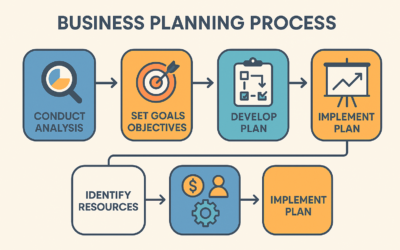Business valuation is very important for any company. If you know what your business is worth today, you’ll be well-placed to determine its value tomorrow. However, the majority of valuation models take their basis from hard facts and historical revenue figures. If you’re running a start-up, you simply don’t have this information to hand. With a mature company, common valuations can be carried out by examining the earnings before interest, depreciation, amortization, and taxes. Yet, start-up businesses usually are in a fairly unstable stage in terms of revenue. With that in mind, how can you value a start-up?
Recapping The Valuation Basics
There are several factors to bear in mind when you’re valuing any start-up organization. Balanced supply and demand is just one key element that raises a start-up’s valuation. Two more are the founder’s positive reputation and properly-functioning channels of distribution.
There are, however, some factors that may lower the valuation. These include high competition, an inexperienced management team, and low margins. When valuing start-ups, pre-revenue valuation models have significant importance. This is because most start-ups have no revenue, to begin with, let alone profits. Usually, valuation comes into play if business owners want to bring in more capital via investment. You should remember that business owners usually want their company to be valued as highly as possible, but investors want the lowest possible valuation so they can maximize their ROI.
Using A Valuation Framework
The team at GR-US.com most commonly uses a valuation framework for start-ups that combines several different valuation models to find a sensible average. As start-ups rarely have any historical numbers to use, the models take their basis from well-founded predictions. The Comparable Transactions Method is a useful model for this, involving finding out the amount that similar companies within your region and industry are worth.
The Berkus Method
The Berkus Method is another popular valuation model used for start-ups. This method involves asking yourself if you think your company will be capable of reaching revenue of $20 million by its fifth year of trading. If the answer is yes, you begin considering sound ideas, quality management, product rollout, strategic relationships, and prototype. This model shows clearly how start-up valuations are constructed on future development prognosis.
The Scorecard Valuation Model
This is an elaborate approach to the valuation of start-ups. It involves determining an initial company value, then adjusting it in accordance with 12 different risk factors including manufacturing risk, stage of your business, potential lucrative exit, and technology risks. These factors are weighed up and modified depending on the impact they are likely to have on your company’s overall success.
Valuing Your New Start-Up
A business valuation represents the best starting point if you need to bring more capital into your business. It helps you look more objectively at your company and to base the argument on figures. Remember, no valuation is permanent. Your valuation can still be influenced by your actions, particularly when your business is a start-up!

0 Comments